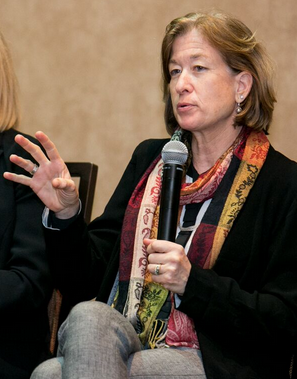AMARILLO, TX and WASHINGTON, DC – In the journey surrounding the Provider Relief Fund (PRF), part of the Coronavirus Aid, Relief, and Economic Security (CARES) Act (P.L. 116-136) and the Paycheck Protection Program (PPP) and Health Care Enhancement Act (P.L. 116-139), a week rarely goes by without new and important updates.
This past week, like so many others, promised both more information and more questions. Below, we briefly explore the two most important updates from the past week: (i) a new phase of funding under the PRF, and (ii) new guidance pertaining to the PPP and the transfer or sale of businesses.
 Provider Relief Fund Phase 3 Funding
Provider Relief Fund Phase 3 Funding
On October 1, 2020, the U.S. Department of Health and Human Services (“HHS”) announced a third phase of PRF funding for a total amount of $20 billion. This new round of funding became available for application beginning on October 5, 2020 and will be open through November 6, 2020. HHS is encouraging providers to apply as soon as possible to expedite HHS’s review and award process. All providers who have already received PRF payments are invited to apply as are some previously ineligible providers, such as those who began operating in 2020 and an expanded group of behavioral health providers.
HHS states that the award of the third phase of the PRF will take into account the loss and additional expenses associated with the pandemic. In a simplified form, HHS states that it will work to ensure that providers have received an equitable payment of two percent of annual revenue plus add-on payments to account for revenue losses and additional expenses due to COVID-19. HHS states that it will calculate equitable add-on payments by considering the following factors:
- A provider’s change in operating revenues from patient care;
- A provider’s change in operating expenses from patient care, including expenses incurred related to coronavirus; and
- Payments already received through prior PRF distributions.
It is interesting that the above measures and concepts seem to, again, echo some of the language contained in the HHS September 19, 2020, notice regarding CARES Act reporting requirements. However, in a departure from that notice, the new October 1 guidance seems to differentiate between the “2% of annual revenue” PRF grants and additional add-on grants based on the concepts of patient operating revenues and expenses that were first controversially introduced in the September 19, 2020, notice.
 It is too early to tell whether HHS’s differentiation of these concepts in the Phase 3 funding announcement is an acknowledgment that the CARES Act reporting requirements will be substantially modified, but we maintain hope that HHS is moving in that direction. At the least, we know that the guidance and law in this area remain unsettled and that we should all continue to stand by for now. In the interim, we encourage providers to apply for their Phase 3 funding.
It is too early to tell whether HHS’s differentiation of these concepts in the Phase 3 funding announcement is an acknowledgment that the CARES Act reporting requirements will be substantially modified, but we maintain hope that HHS is moving in that direction. At the least, we know that the guidance and law in this area remain unsettled and that we should all continue to stand by for now. In the interim, we encourage providers to apply for their Phase 3 funding.
PPP Loan Transfer Guidelines
The PPP was launched in April, 2020. The program encompasses almost five million loans totaling well over $500 billion dollars, all administered by the Small Business Administration (“SBA”). The speed at which this program was unveiled and implemented was historic, but with that came certain realities and challenges. One of the key issues is that the law surrounding the program, including how forgiveness of the loans would be handled, was largely unsettled at the time recipients received their loans. Since that time, the SBA has struggled to promulgate rules and create guidance for recipients. On October 3, 2020, the SBA issued key guidance for small businesses that received PPP loans and are thinking of selling or merging their businesses. According to this new guidance, businesses contemplating such a transaction will now need to notify their PPP lender in writing of the contemplated transaction and provide the PPP lender with copies of the proposed arrangements to obtain, where required, lender and SBA approval of the transfer. This requirement creates a new layer of complexity and delay for business owners who may be struggling through this ongoing pandemic. There are a number of detailed rules and exceptions to the sale/merger approval required above, many of which are beyond the scope of this article. We will, however, highlight a few critical points that may be of interest:
- If a PPP note is fully satisfied, the notice requirement will no longer apply. Fully satisfied is defined to mean:
- the note has been repaid by borrower in full;
- the SBA has remitted funds to the bank lender in full satisfaction of the PPP note; or
- the borrower has repaid any balance on the note and has achieved full forgiveness pursuant to PPP rules.
- A change of ownership does not include transfer of less than 20 percent to total ownership or an asset transfer of less than 50 percent of the assets of the entity.
- A sale or transfer of more than 20 percent, but less than 50 percent, of total ownership will require lender acknowledgment but not SBA approval.
- Sellers may utilize escrow deposits in combination with the submission of a forgiveness application to avoid the need for SBA approval.
The requirements surrounding the sale or transfer of your business are complex in any environment, but even more so if your entity has received PPP loans and/or other types of PRF funds. Always consult with your CPA and an attorney experienced in these matters if you are considering such a transaction.
Cara C. Bachenheimer, JD, is an attorney with the Health Care Group at Brown & Fortunato, PC, a law firm with a national health care practice based in Texas, where she heads up the firm’s Government Affairs Practice. Ms. Bachenheimer’s practice focuses on federal lobbying activities with Congress, the Administration, and federal regulatory agencies, such as CMS, FDA, IRS, and FAA. She can be reached at (806) 345-6321 or cbachenheimer@bf-law.com.
Kelly T. Custer, JD, is an attorney with the Health Care Group at Brown & Fortunato, PC, a law firm with a national health care practice based in Texas. He represents pharmacies, infusion companies, HME companies and other health care providers throughout the United States. Mr. Custer can be reached at (806) 345-6343 or kcuster@bf-law.com.
AAHOMECARE’S EDUCATIONAL WEBINAR
Targeted Probe and Education Review: What It Is and How to Respond
Presented by: Jeffrey S. Baird, Esq., Brown & Fortunato, P.C. & Denise M. Leard, Esq., Brown & Fortunato, P.C.
Tuesday, October 20, 2020
2:30-3:30 p.m. EASTERN TIME
Well, it is an understatement to say that we are living in uncertain times. However, what is certain is that the demand for DME will continue to increase. This is due to the aging of the 78 million Baby Boomers, the impact of COVID-19, and the need to keep people out of the hospital. As we eventually return to a semblance of normalcy, DME suppliers will have to respond to post-payment audits. Over the years, post-payment audits have been unfair to DME suppliers. CMS has attempted to address this unfairness by implementing the Targeted Probe and Educate (“TPE”) program. Under the TPE program, the supplier is not subjected to unlimited requests for documentation … followed by vague denials. Rather, under the program, the DME MAC (i) requests a limited number of patient files, (ii) reviews the files, (iii) explains any denials, and (iv) provides education to the supplier that addresses the denials. This webinar will discuss what the TPE program is and how the DME supplier should respond to a TPE request. Equally important, this webinar will talk about the steps the supplier should take to ensure that its documentation will pass TPE review.
Registration will be posted soon for Targeted Probe and Education Review: What It Is and How to Respond on Tuesday, October 20, 2020, 2:30-3:30 p.m. ET, with Jeffrey S. Baird, Esq. and Denise M. Leard, Esq., of Brown & Fortunato, PC.
FEES:
Member: $99.00
Non-Member: $129.00
AAHomecare’s Retail Work Group
The Retail Work Group is a vibrant network of DME industry stakeholders (suppliers, manufacturers, consultants) that meets once a month via video conference during which (i) an expert guest will present a topic on an aspect of selling products at retail, and (ii) a question and answer period will follow. The next Retail Work Group video conference is scheduled for November 12, 2020, at 11:00 a.m. Central. Lisa Wells of NATURALLY ABLE will address “Reaching Your Retail Audience Beyond Google Ads.” Participation in the Retail Work Group is free to AAHomecare members. For more information, contact Ashley Plauché, Manager of Member & Public Relations, AAHomecare (ashleyp@aahomecare.org).

